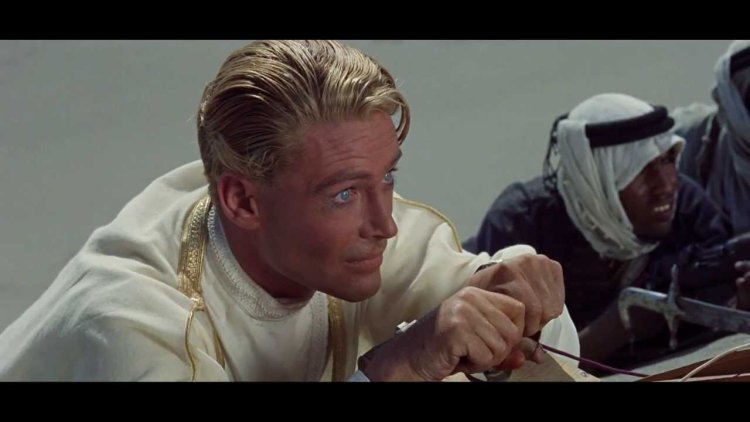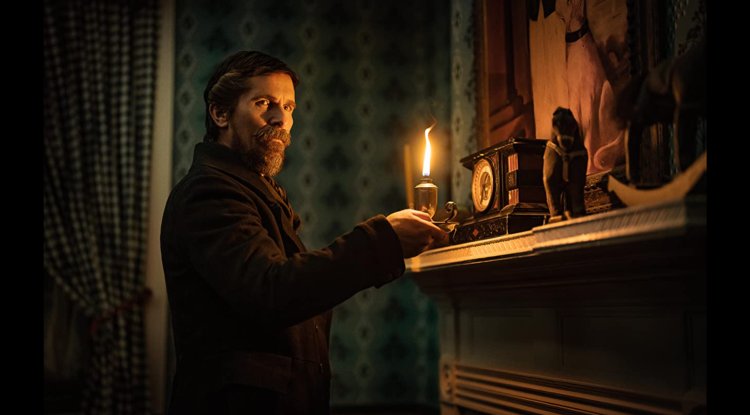'Lawrence of Arabia' (1962)
Welcome to our comprehensive exploration of "Lawrence of Arabia" (1962), a cinematic masterpiece directed by David Lean. In this article, we delve into the epic scope, stunning cinematography, and complex character study that make this film a timeless classic. Prepare to embark on a remarkable journey through the deserts of Arabia and witness the transformation of a man who became a legend.

The Grandeur of Cinematic Epic
"Lawrence of Arabia" is a true cinematic epic that transports viewers to a bygone era of adventure and discovery. The film's grand scale, sprawling landscapes, and awe-inspiring cinematography captivate audiences from the opening scene. Through David Lean's visionary direction and the masterful lens of cinematographer Freddie Young, the desert becomes a character in itself, with its vastness and beauty serving as a backdrop for the narrative. Every frame is a work of art, immersing viewers in the untamed beauty of the Arabian desert.
The Enigmatic T.E. Lawrence
At the heart of "Lawrence of Arabia" is the enigmatic figure of T.E. Lawrence, portrayed by the brilliant Peter O'Toole. Lawrence, a British army officer, embarks on a journey that transforms him both physically and emotionally. Through his interactions with Arab tribes and his growing admiration for their culture, Lawrence becomes deeply entwined in the Arab revolt against the Ottoman Empire during World War I. O'Toole's portrayal of Lawrence is a tour de force, capturing the complexities of his character and his inner struggle with identity and purpose.
A Study of Identity and Ambiguity
"Lawrence of Arabia" delves into the theme of identity and the blurred lines between heroism and madness. As Lawrence becomes more involved in the Arab revolt, he grapples with his own identity, torn between his loyalty to the British and his newfound allegiance to the Arab cause. The film explores the psychological toll of war and the impact of cultural immersion on an individual's sense of self. Lawrence's transformation from an ordinary man to a revered and controversial figure is a captivating study of the human psyche.
Unforgettable Performances
In addition to Peter O'Toole's mesmerizing portrayal of T.E. Lawrence, "Lawrence of Arabia" boasts a stellar ensemble cast. Alec Guinness delivers a captivating performance as Prince Faisal, a charismatic Arab leader. Anthony Quinn shines as Auda Abu Tayi, a powerful Bedouin chief. The chemistry and dynamic interactions between the cast members bring depth and authenticity to the characters, elevating the film to new heights.
Themes of Colonialism and Cultural Clash
"Lawrence of Arabia" delves into the complex dynamics of colonialism and the clash of cultures during a time of political upheaval. The film sheds light on the historical context of the Arab revolt against the Ottoman Empire and the struggle for independence. It portrays the tensions between Western powers and indigenous populations, raising questions about imperialism, cultural imperialism, and the effects of foreign intervention. "Lawrence of Arabia" serves as a poignant reminder of the complexities and consequences of colonialism.
The Power of Cinematic Score
The film's sweeping and evocative score, composed by Maurice Jarre, adds another layer of grandeur to the cinematic experience. The memorable and iconic theme music captures the essence of Lawrence's journey and the vastness of the desert. The score enhances the emotional impact of the film, guiding viewers through the highs and lows of Lawrence's odyssey.
Also Check Famous celebs who denied they had a nose job
A Landmark in Film History
"Lawrence of Arabia" is not only a cinematic triumph but also a landmark in film history. Its technical achievements, including its stunning cinematography, meticulous production design,




























